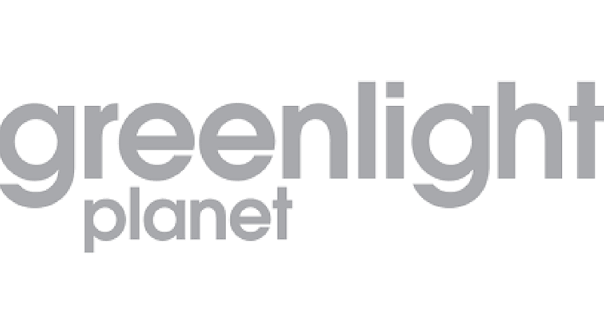E-Business
Greenlight Planet, Partners Telecom Operators in Sub-Saharan Africa on PAYG Solar

Greenlight Planet, the market leader in the rapidly expanding pay-as-you-go (PAYG) solar industry has successfully partnered with major telecom operators in Africa.
Recognizing the natural synergy between the telecom and pay-as-you-go solar industries, the company is pursuing a strong telecom-focused strategy that aims to have a far-reaching impact on more than 600 million unelectrified consumers across the African continent.
The company has collaborated with more than fifteen telecom operators, banks and payment gateways to make Sun King products more affordable and accessible for rural individuals, increasing long-term value for a common consumer base.
Full-fledged sales and distribution partnerships have been launched with three leading telecom operators, Vodacom (Tanzania), Orange (Burkina Faso) and Telma (Madagascar), to enable sales of solar-powered energy solutions through each operator’s subscriber base and mobile money channels.
In addition, Greenlight Planet has integrated its innovative PAYG technology platform with leading mobile money providers across sub-Saharan Africa, enabling consumers to make continuous installment payments in a secure and simple way.
Greenlight Planet establishes unique operating models with each telecom partner to best serve and work with each service provider’s strategic goals, local business model and competitive landscape.
Mr. Dhaval Radia, Senior Vice President at Greenlight Planet, says “The time is right for telecoms to look beyond their traditional revenue earning models and explore innovative partnerships that can lead to a sustained increase in ARPU and customer retention.
By expanding to rural consumer segments with value-added services such as PAYG solar products for daily energy and infotainment, telecom operators can help deliver higher value to their customer base.”
Recent collaborations between PAYG solar companies and telecom operators have demonstrated that PAYG solar customers are amongst the most active profiles of mobile money users in sub-Saharan Africa, many opening their first mobile money account specifically to purchase a PAYG solar home system.
Ninety-eight percent of Greenlight Planet’s PAYG customers make roughly 60 mobile money payments between $2 and $5 each over a period of twelve to twenty-four months to complete their installment payment plans for a PAYG solar device. The company has processed nearly 40 million mobile money payments from customers in Africa in the last three years.
With more than 100 million mobile money subscribers, and nearly 600 million people that lack reliable access to electricity on the African continent, opportunities for the telecom and distributed energy sectors to join forces remain tremendous.
Since inception, Greenlight Planet has installed nearly six million solar products, benefitting over 24 million individuals, across Sub-Saharan Africa through its direct distribution channels in Kenya, Nigeria, Tanzania, and Uganda and through more than 200 strategic alliances in 32 countries across the African continent.
E-Business
Google Announces $37m Funding in Africa

Google has outlined a wave of AI support across Africa, representing $37 million in cumulative funding — including previously committed but unannounced funding — to research, talent development, and infrastructure.

The funding package includes funding and partnerships that aim to strengthen AI research, support African languages, improve food systems, expand digital skills, and build research capacity.
The AI Collaborative for Food Security, a multi-partner initiative launched with $25 million in funding from Google.org will bring together researchers, and nonprofit organizations to co-develop AI tools for early hunger forecasting, crop resilience, and tailored guidance for smallholder farmers.
The goal is to help make food systems across Africa more adaptive, equitable, and resilient in the face of increasing climate and economic shocks.
Google also announced $3 million in funding to the Masakhane Research Foundation, the open research collective advancing AI tools in over 40 African languages.
The funding will support the development of high-quality datasets, machine translation models, and speech tools that make digital content more accessible to millions of Africans in their native languages.
To further empower innovation, Google is launching a catalytic funding initiative to support AI-driven startups tackling real-world challenges.
This platform will combine philanthropic capital, venture investment, and Google’s technical expertise to help more than 100 early-stage ventures scale AI-based solutions in agriculture, healthcare, education, and other vital sectors.
Startups will also receive mentorship, access to tools, and technical guidance to support responsible development.
Africa’s AI talent is growing rapidly, but the infrastructure to support it must grow in tandem.
That’s why a cornerstone of this announcement is the launch of the AI Community Center in Accra — a first-of-its-kind space for AI learning, experimentation, and collaboration in Africa.
The Center will host training sessions, community events, and workshops focused on responsible AI development. Its programming will span four pillars: AI literacy, community technology, social impact, and arts and culture — providing a platform for a diverse ecosystem of developers, students, and creators to engage with AI in ways that are grounded in African priorities.
To help meet the rising demand for AI and digital skills, Google is rolling out 100,000 Google Career Certificate scholarships for students in higher learning institutions across Ghana.
These fully funded, self-paced programs will focus on AI Essentials, Prompting Essentials, and other high-growth fields like IT Support, Data Analytics, and Cybersecurity — enabling more learners to access job-ready training and build careers in AI and the digital economy.
Beyond Ghana, Google.org is committing an additional $7 million to support AI education across Nigeria, Kenya, South Africa, and Ghana.
The funding will support academic institutions and nonprofits building localized AI curricula, online safety training, and cybersecurity programs.
Additionally, two new $1 million grants from Google.org aim to bolster AI research capacity across the continent.
One grant goes to the African Institute for Data Science and Artificial Intelligence (AfriDSAI) at the University of Pretoria to support applied AI research and training.
The other supports the Wits Machine Intelligence and Neural Discovery (MIND) Institute in South Africa, which will fund MSc and PhD students to conduct foundational AI research and help shape Africa’s role in the global AI landscape.
Speaking about the announcements, James Manyika, senior vice president for Research, Labs, and Technology & Society at Google, said: “Africa is home to some of the most important and inspiring work in AI today. We are committed to supporting the next wave of innovation through long-term investment, local partnerships, and platforms that help researchers and entrepreneurs build solutions that matter.”
Yossi Matias, vice president of Engineering and Research at Google, added: “This new wave of support reflects our belief in the talent, creativity, and ingenuity across the continent. By building with local communities and institutions, we’re supporting solutions that are rooted in Africa’s realities and built for global impact.”
E-Business
How High the Risk of a Cyber Incident in Your Organisation

One of the core reasons why businesses remain vulnerable to cyberthreats is that they underestimate their risk or overestimate the strength of their existing defences.

According to a recent Kaspersky survey entitled “Cybersecurity in the workplace: Employee knowledge and behaviour”, 52,1% of professionals surveyed in the Middle East, Turkiye and Africa (META) region, whose work requires the use of computers, asses the risk of a cybersecurity incident happening to their company as quite possible.
Commenting on the probable consequences of a cybersecurity incident, 55,6% of employees surveyed supposed that it might seriously affect the company. This understanding of risks comes not only from general cybersecurity awareness, but also from knowledge about cyber incidents in their organisations: 31,8% of respondents acknowledged such incidents happened in the past 12-months, while an additional 26,2% said they have heard about these incidents from colleagues.
Organisations nowadays face a variety of cyberthreats ranging from phishing and business email compromise to ransomware and advanced persistent threats.
In a lot of these attacks, the entry point into the organisation’s network is via a human mistake, and it is for that reason attackers actively employ social engineering techniques and AI tools to make their efforts more effective.
The survey shows that the majority of respondents understand that cybersecurity is an issue that should be considered by the IT department, while 23,9% also mentioned top level executives and 15,9% cited legal and financial employees as core groups within the business who should keep cybersecurity issues in mind. Only 30,6% of employees surveyed viewed cybersecurity as an issue that should be considered by all employees across the entire business.
“In today’s digital landscape, cybersecurity is a collective responsibility that extends beyond the IT department. Every employee should remain vigilant against evolving threats.
“Regular cybersecurity training, use of relevant IT solutions, well-defined policies and an incident response plan are essential pillars of organisational cyber resilience. When every team member is informed and prepared, the organisation stands stronger against cyber threats,” says Brandon Muller, Technical Expert for the MEA region at Kaspersky.
E-Business
UAC Acquires ChivitaHollandia from Coca-Cola in Strategic Move to Expand Food & Beverage Leadership in Nigeria

The Coca-Cola Company has entered into an agreement to sell Chivita|Hollandia (CHI Limited) to UAC of Nigeria PLC (UAC).

Chivita|Hollandia (CHI Limited) is a leading food and beverage player in Nigeria, with a portfolio across value-added dairy products, juices, nectars, still drinks, and snacks.
The Hollandia brand is the market leader in evaporated milk and drinking yoghurt, while the Chivita brand is the market leader in fruit juice.
This transaction, which is subject to regulatory approval, further supports The Coca-Cola Company’s strategy to operate a flexible and asset-light model and focus on brands that have the greatest potential to scale.
The Coca-Cola system recently announced it will invest $1 billion in Nigeria over five years and remains committed to these investments, provided a predictable and enabling environment is in place.
This investment underscores the importance of Africa as a long-term growth opportunity for the Coca-Cola system.
UAC is a holding company focused on domestic manufacturing, marketing, and distribution of leading consumer brands in Africa. The company operates nine manufacturing facilities and several logistics and distribution hubs across Nigeria, with 5,000 employees.
Fola Aiyesimoju, group managing director of UAC, said: “As a company with a strong presence in Africa, we are deeply committed to the continent’s growth. We are pleased to announce the acquisition of Chivita|Hollandia (CHI Limited), a leading dairy and juice business in the region.
“This acquisition presents significant potential to build on Chivita|Hollandia’s (CHI Limited’s) legacy of excellence and innovation. I would like to thank the management and staff of Chivita|Hollandia (CHI Limited) and look forward to working with the team to support the next phase of growth.”
Eelco Weber, managing director of Chivita|Hollandia (CHI Limited), said the business has made significant progress over the past few years, with the Chivita and Hollandia brands becoming clear leaders in their categories.
“I would like to thank our over 5,000 employees for their hard work and dedication in bringing our business forward and earning us recognition as a Gold-rated Great Place to Work,” Weber said.
The management team, including Weber, are confident in the company’s growth prospects. “We see a bright future for Chivita|Hollandia (CHI Limited),” Weber said. “With the strength of our team, coupled with the dedication of UAC, there will be exciting opportunities for further growth.”
Citi served as exclusive financial advisor to The Coca-Cola Company, with McDermott Will & Emery acting as legal advisor. Fasken Martineau LLP and Templars Law served as legal advisors to UAC.

 Telecom2 days ago
Telecom2 days agoGlo Boosts Network Capacity for Enhanced Customer Experience

 News2 days ago
News2 days agoTranscorp Power Posts Strong Half-Year Profit, Declares ₦11.25Bn Dividend

 E-Financial2 days ago
E-Financial2 days agoFG Asks Banks to Report Individuals with N25m Monthly Transactions to FIRS

 Telecom2 days ago
Telecom2 days agoNIMC Warns Nigerians Against Selling NIN Data Amid Rising Identity Fraud

 Telecom2 days ago
Telecom2 days agoMTN’s Uto Ukpanah Becomes 30th ICSAN President, Reinforcing Female Leadership in Governance

 E-Business2 days ago
E-Business2 days agoTemu Joins INTA to Combat Counterfeits and Elevate IP Standards Worldwide

 News2 days ago
News2 days agoInfraCredit, AMDA Sign Partnership to Unlock Local Financing for Africa’s Mini-grid Sector

 E-Financial2 days ago
E-Financial2 days agoNIBSS: Active Bank Accounts in Nigeria Hit 320m















